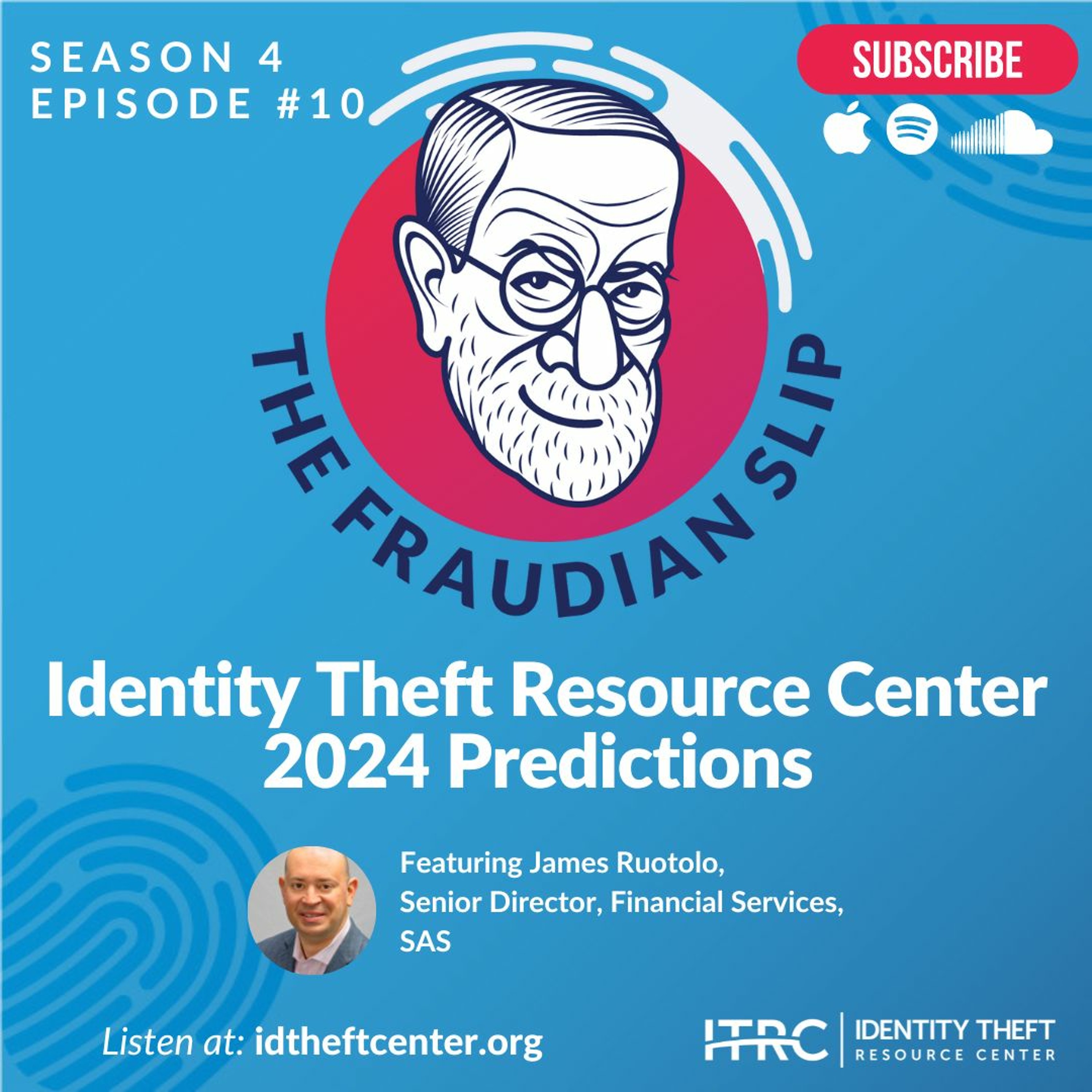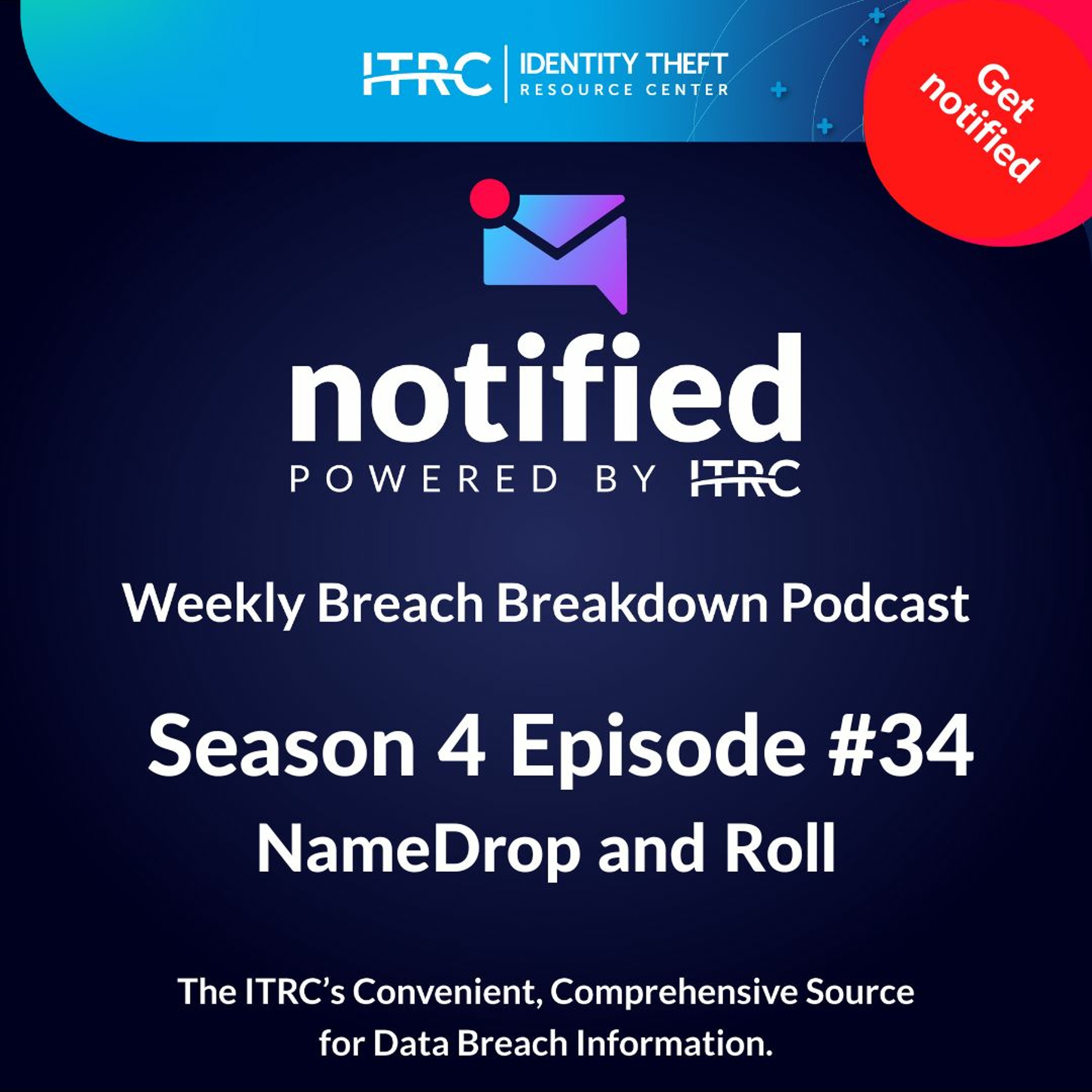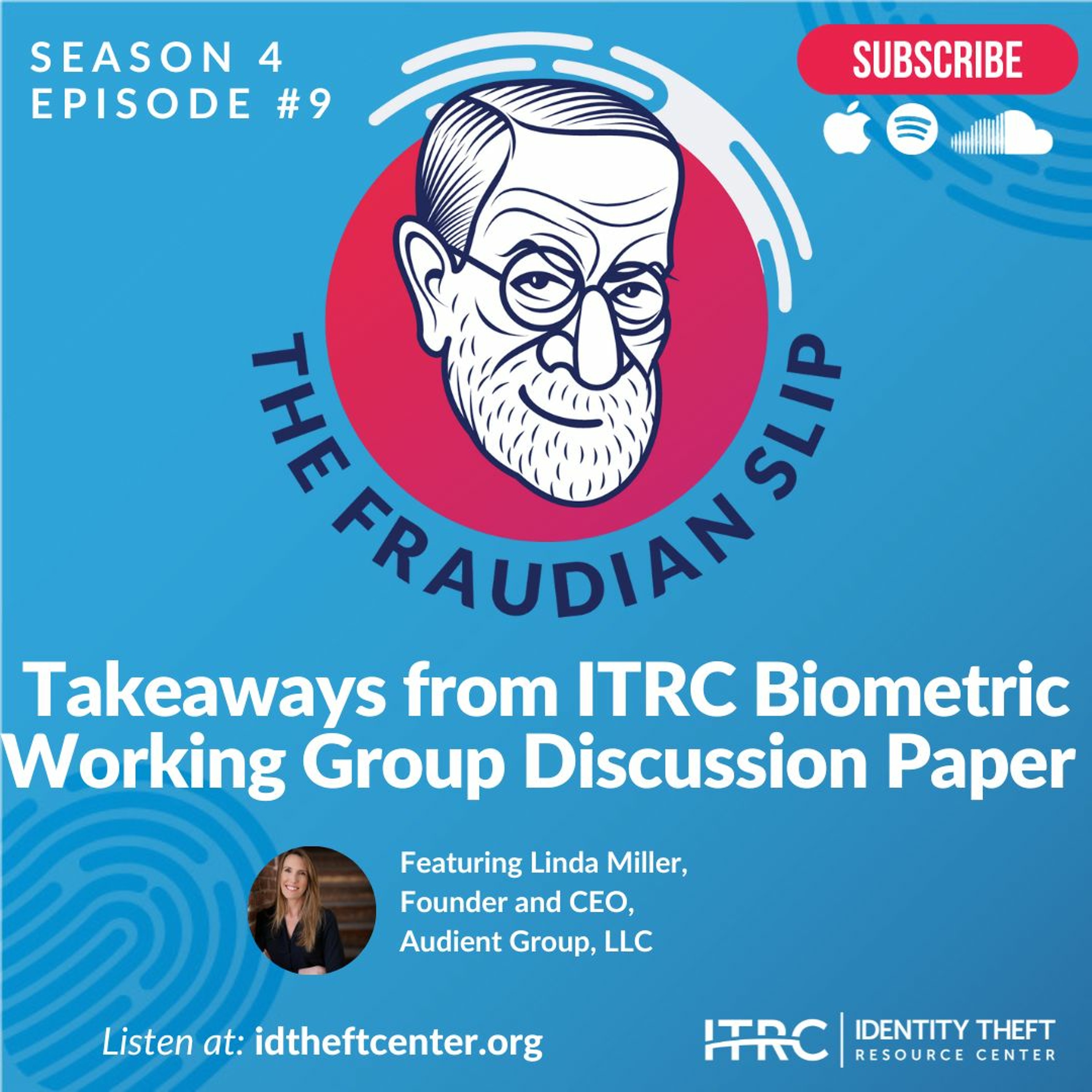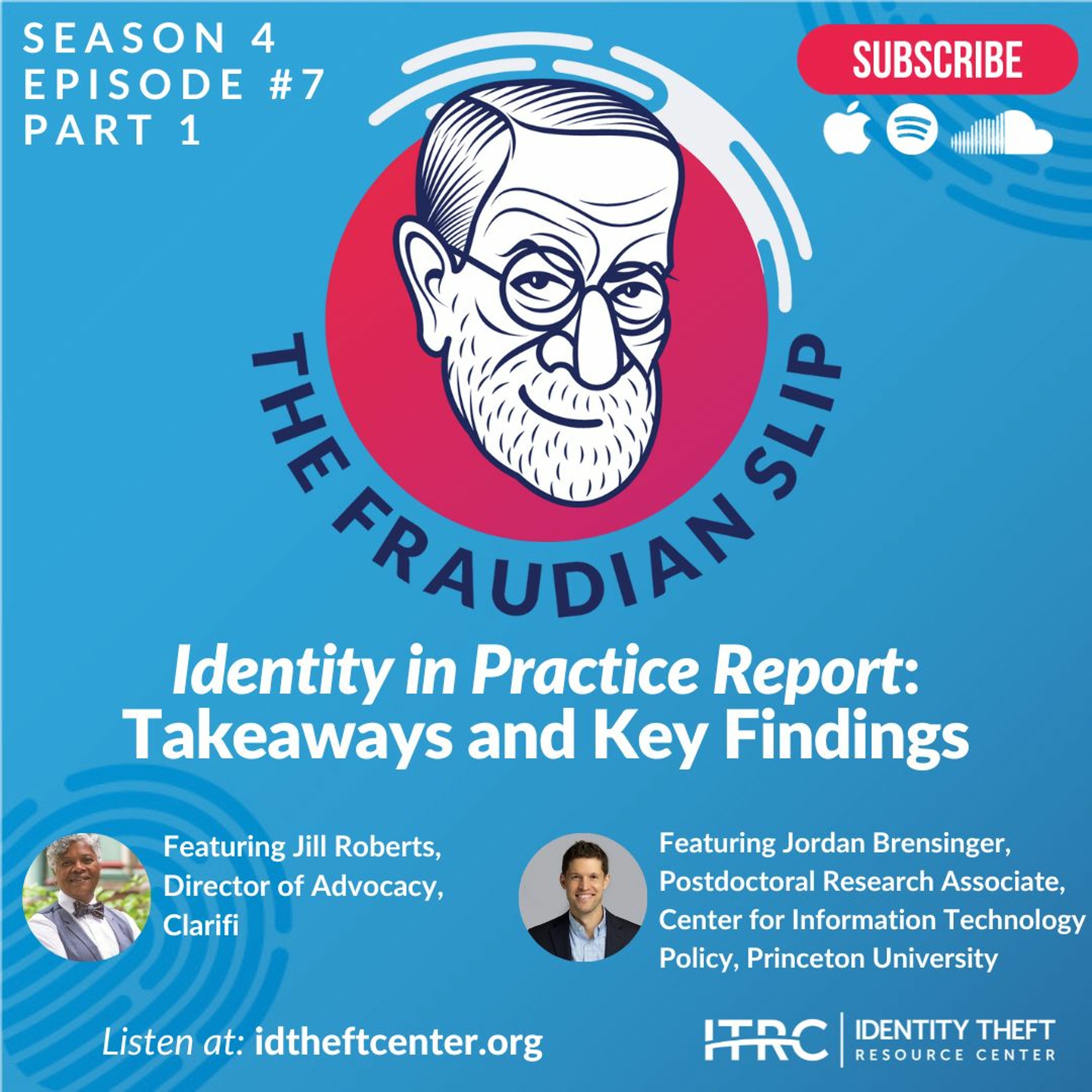This week, in a 2-part segment, we look at the Identity in Practice Report.
Show Notes
Follow on LinkedIn: www.linkedin.com/company/idtheftcenter/
Follow on Twitter: twitter.com/IDTheftCenter
Show Transcript
Welcome to The Fraudian Slip, the Identity Theft Resource Center’s (ITRC) podcast, where we talk about all things identity compromise, crime, and fraud that impact people and businesses. Listen on Apple, Google, Spotify, SoundCloud, Audible and Amazon now. In this month’s episode (part 1 of a two-part series), we examine identity crimes in Black communities in the ITRC’s Identity in Practice Report.
In 2018, the data captured from identity crime victims contacting the ITRC began to show a statistical anomaly. It was just a blip at first. However, by the next year, it was clear what we were seeing was not a glitch but a trend. There were an increasing number of victims who identified as Black, well beyond what you would expect to see based on the percentage of the population who are African American or Black.
Being the curious people we are, we started to look for research that might explain why. Was there just greater awareness of identity crimes and where to get help that was leading people to the ITRC? Or were there more identity crime victims in communities of color? As it turns out, there was no research on this topic at the time.
From that seemingly simple question – why? – was born a multi-year, multi-phase program we call Identity in Practice. Supported by LifeLock (a part of Gen™), Synchrony and the Wells Fargo Foundation, the first two years and two phases have tackled the research component, resulting in a report issued this week and the topic for today’s discussion. You can download the report at www.idtheftcenter.org/publications to read the specific findings.
There’s too much good information to cover in a single podcast – so we are breaking this episode into two parts, posted one day apart. In Part 1, we focus broadly on the issue of identity crimes in Black communities with our panel of experts.
Our quantitative and qualitative research was conducted by the Black Researchers Collective in Chicago with the assistance of Tiye McKethen of the ITRC staff—a big shout-out to our stellar research team.
Also, here’s the answer to the question: are Black communities victimized at a higher rate than the general U.S. population? Yes.
Here to talk about the dynamics of that key finding is Jill Roberts from Clarifi, a community support organization in Philadelphia that helped organize the focus group in that city, and Jordan Brensinger, a researcher at Princeton University and a one-time intern at the ITRC. As always, we are joined by the ITRC’s President and CEO, Eva Velasquez.
We talked with Jill Roberts about the following:
- Clarifi and how identity crimes factor into their work
- Whether or not anything surprised her in the findings, specifically from the focus groups in her city, Philadelphia
- Some of the barriers to getting assistance to Black communities when it comes to identity crimes
We talked with Jordan Brensinger about the following:
- His area of research
- Whether or not he was surprised by any of the findings in his research
- How the ITRC research findings compare to his own
We talked with Eva Velasquez about the following:
- How the ITRC came to conduct research into identity crimes in Black communities
- What surprised her in the research findings
To learn more about Clarifi, visit www.clarifi.org.
To learn more about Jordan Brensinger’s research, visit www.jordanbrensinger.com
Contact the ITRC
If you think you have been the victim of an identity crime or want to avoid becoming a victim, you can speak with an expert advisor on the phone (888.400.5530), chat live on the web or send us an email during our normal business hours (6 a.m.-5 p.m. PST Monday-Friday). Just visit www.idtheftcenter.org to get started.
We will be back tomorrow with Part 2 of our discussion on the findings in the ITRC’s Identity in Practice Report.
Listen On
Also In Season 4
-

The Fraudian Slip Podcast ITRC - 2024 Predictions
Welcome to the Fraudian Slip…the Identity Theft Resource Center’s podcast where -

The Weekly Breach Breakdown Podcast by ITRC - NameDrop and Roll - S4E34
Welcome to the Identity Theft Resource Center’s Weekly Breach Breakdown for Dece -

The Fraudian Slip Podcast ITRC - Takeaways from the ITRC Biometric Working Group Discussion Paper
Welcome to the Fraudian Slip…the Identity Theft Resource Center’s podcast, where -

The Weekly Breach Breakdown Podcast by ITRC - Bad News travels Fast - S4E33
Welcome to the Identity Theft Resource Center's Weekly Breach Breakdown for Nove
